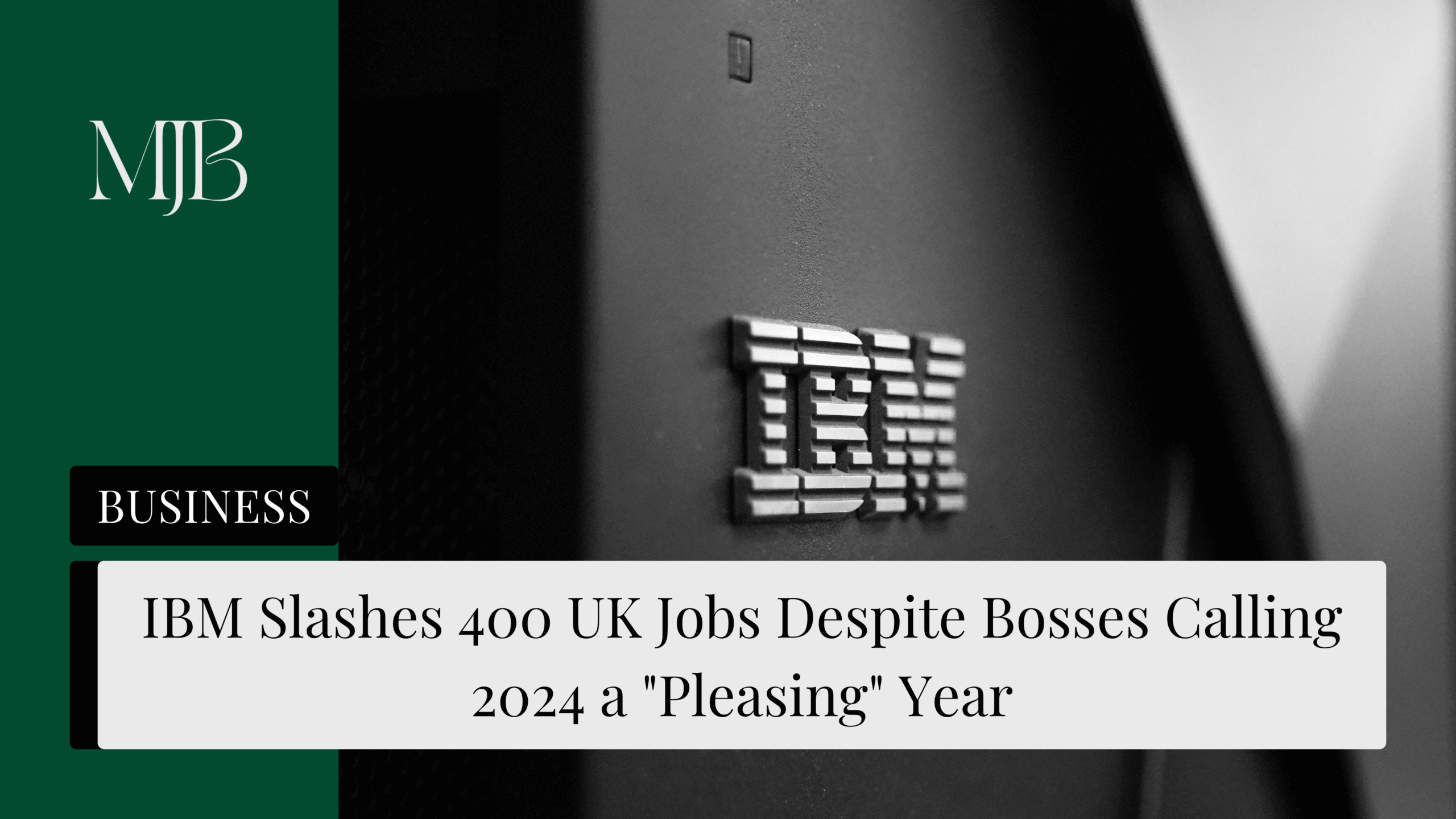Big Blue just got a little smaller in the UK. IBM cut nearly 400 jobs across its British operations in 2024 while profits tumbled 25% — yet management somehow called it a satisfying year. The numbers tell a different story than the boardroom spin.
Here’s what actually happened behind IBM’s optimistic press releases and why this matters for the broader tech sector.
IBM UK by the Numbers: The Reality Check
IBM’s UK division went from employing 7,309 people to just 6,920 — a drop of 389 jobs. That’s roughly 5% of their workforce getting the chop in just 12 months.
The financial picture isn’t much prettier. Pre-tax profits fell from £172.9m to £130.4m, while revenue barely budged (£3.06bn to £3.04bn). After paying out £198m in dividends to their US parent in 2023, shareholders got zilch in 2024.
Remember when IBM’s profits jumped over £100m in 2023 thanks to AI and cloud demand? Those glory days seem like ancient history now.
Why IBM’s “Pleased” Directors Might Want New Glasses
Despite the job cuts and profit decline, IBM’s board declared they were “pleased with the performance.” Their reasoning? The company made “significant progress” becoming more “innovative and focused” around hybrid cloud and AI.
That’s corporate speak for “we’re shrinking to grow.” It’s the classic tech playbook — cut costs, streamline operations, and hope the AI boom saves you.
The company did point to a 1.6% increase in core business revenue, but export revenues to other IBM divisions dropped 12.8%. Translation: they’re doing okay locally but struggling internationally.
What This Means for Tech Workers and Investors
IBM’s UK struggles reflect broader challenges facing legacy tech companies. While newer AI players grab headlines and funding, established giants like IBM are caught between expensive transformations and competitive pressure.
For tech workers, it’s a reminder that even “stable” corporate jobs aren’t immune to restructuring. For investors, IBM’s mixed signals — job cuts amid optimistic management speak — highlight the importance of looking beyond corporate PR.
The company’s net assets did rise from £1.75bn to £1.98bn, mainly due to acquiring Super iPaaS Integration UK Limited. So they’re still making moves, just smaller ones with a lighter workforce.
The Bottom Line
IBM’s 2024 tells the story of a company in transition — cutting costs while betting big on AI and cloud services. Whether that strategy pays off remains to be seen, but 389 former employees probably aren’t feeling the optimism their ex-bosses are selling.
Ready to stay ahead of tech industry shifts? Keep watching how legacy players like IBM navigate the AI revolution — their moves often predict broader market trends.
FAQ
Q1: Why did IBM cut so many UK jobs despite management optimism?
A: IBM is restructuring to focus on AI and hybrid cloud services, which requires different skills than their traditional business. The job cuts likely reflect this strategic shift rather than pure cost-cutting.
Q2: How does IBM’s 2024 performance compare to other tech giants?
A: While IBM struggled, other tech companies saw mixed results in 2024. Legacy firms generally faced more pressure than AI-focused companies, making IBM’s challenges fairly typical for established tech players.
Q3: What does this mean for IBM’s future in the UK?
A: IBM remains committed to the UK market with nearly 7,000 employees still on payroll. The company seems to be positioning for long-term growth in AI and cloud services, even if 2024 was a transition year.
Q4: Should investors be worried about IBM’s declining profits?
A: The 25% profit drop is concerning, but IBM’s focus on high-growth areas like AI could pay off. Investors should watch whether the company can convert its strategic investments into revenue growth over the next few quarters.
Q5: Are more job cuts coming at IBM UK?
A: While IBM hasn’t announced future layoffs, companies undergoing digital transformation often have multiple rounds of restructuring. Current employees should stay updated on skill requirements in AI and cloud technologies.
DISCLAIMER
Effective Date: 15th July 2025
The information provided on this website is for informational and educational purposes only and reflects the personal opinions of the author(s). It is not intended as financial, investment, tax, or legal advice.
We are not certified financial advisers. None of the content on this website constitutes a recommendation to buy, sell, or hold any financial product, asset, or service. You should not rely on any information provided here to make financial decisions.
We strongly recommend that you:
- Conduct your own research and due diligence
- Consult with a qualified financial adviser or professional before making any investment or financial decisions
While we strive to ensure that all information is accurate and up to date, we make no guarantees about the completeness, reliability, or suitability of any content on this site.
By using this website, you acknowledge and agree that we are not responsible for any financial loss, damage, or decisions made based on the content presented.






